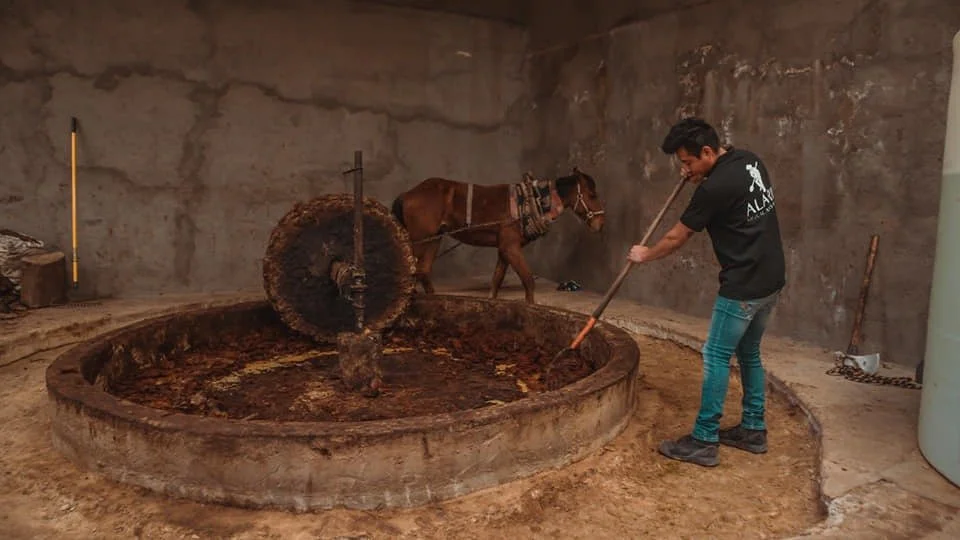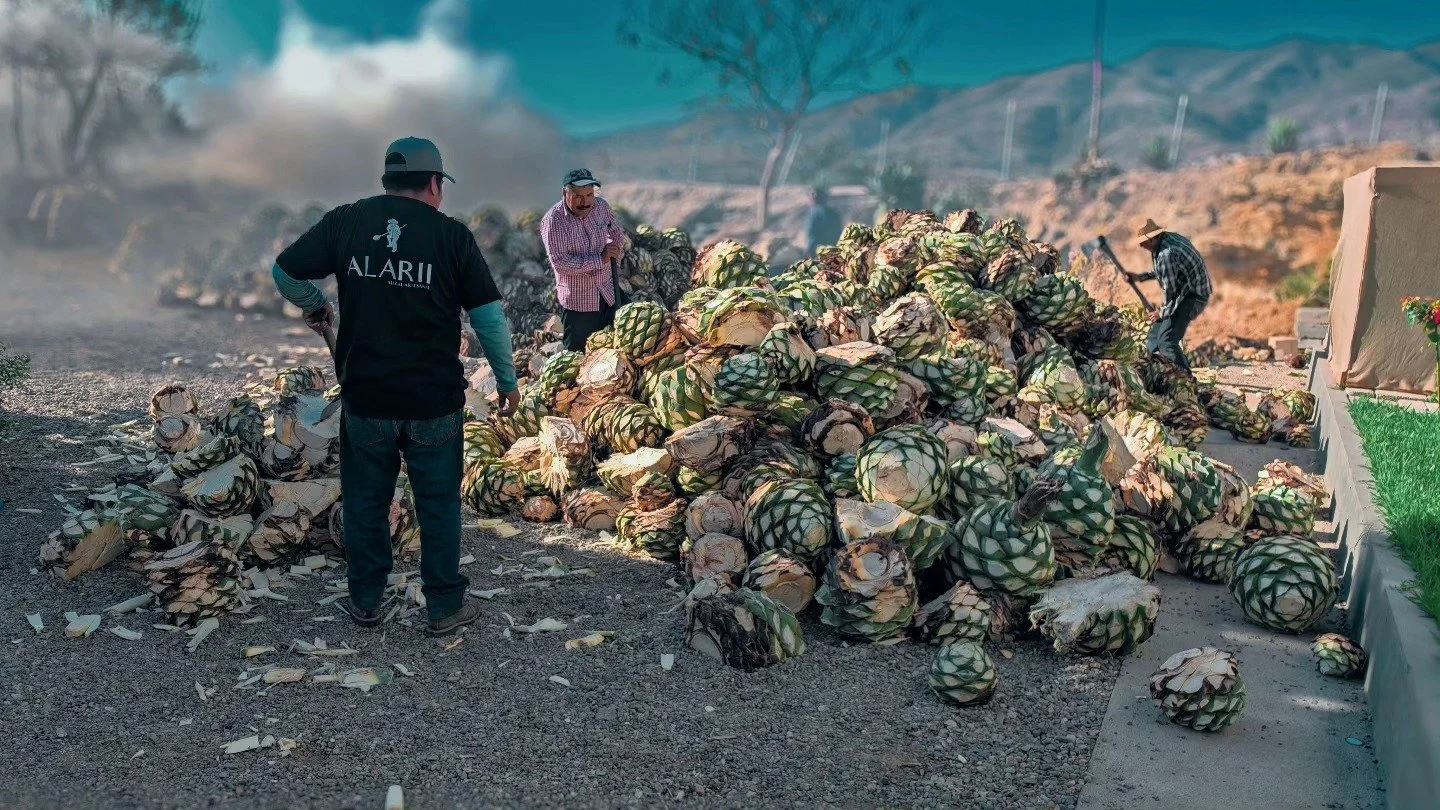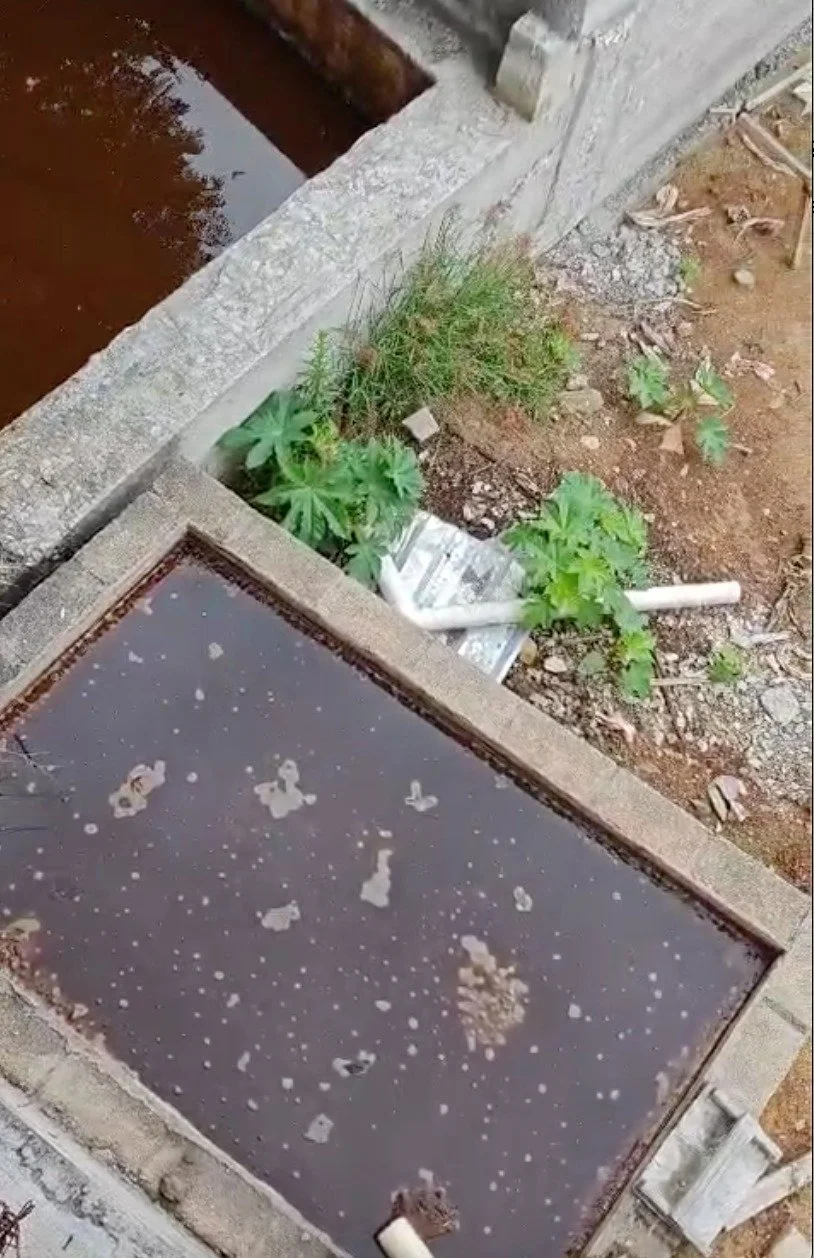CONVERT MEZCAL WASTE INTO FUEL
Up-cycling waste from Mezcal production…
Mezcal producer Serafin Morales Cruz from San Dionisio Ocotepec, Oaxaca, wants to transform the way his community handles vinazas, the liquid byproduct of Mezcal distillation.
Serafin is proud to be a third-generation producer. Alarii is his brand, born from the effort and tradition of two families united by their passion for agave and respect for their Zapotec roots. Interested in using resources responsibly, respecting the land, and keeping alive the practices that make their Mezcal unique, Serafin shares the concern of many habitants in San Dionisio Ocotepec: increased pollution in their water due to mismanagement of vinazas.
Serafin approached SACRED with the proposal to build a bio-digester — a living system of microorganisms that turns waste into clean energy and natural fertilizer.
Every liter of mezcal produced generates between 10 and 15 liters of vinazas, a dark, acidic liquid loaded with organic matter, ethanol residues, and heavy metals. In Oaxaca alone, where hundreds of small distilleries operate, thousands of cubic meters of untreated vinazas are often released into streams and soil, where they deplete oxygen, alter pH levels, and devastate local ecosystems. Studies have shown that these discharges can reduce soil fertility, pollute groundwater, and create foul odors that affect nearby communities.
But what if waste could be reborn as a resource? That’s the promise of the bio-digester Serafin envisions. Inside the bio-digester, a carefully balanced community of anaerobic bacteria —microbes that thrive without oxygen — will feed on the vinazas. As they break down the organic material, they will generate two valuable products:
• Bio-gas, a renewable source of energy that can replace firewood or fossil fuels used in the distillation process, and
• Bio-fertilizer, a nutrient-rich effluent that restores soil health, supports agave cultivation, and closes the production loop.
This process doesn’t just reduce contamination — it also mimics nature’s logic, where nothing is wasted and everything is transformed. The introduction of this small-scale biotechnology could prevent thousands of liters of vinazas from polluting local waterways each year, while simultaneously lowering carbon emissions and reducing the demand for chemical fertilizers.
Serafin has partnered with Dr. Edwin Zelaya, from the Communal Autonomous University of Oaxaca and founder of Biodigestores Arquea, a local business that develops science-based technology that can help reduce damage to the environment. With your support, Serafin will incorporate the bio-digester in Alarii’s production process and inspire other producers in the community to follow. “This bio-digester will serve not only our palenque but also those of nearby producers who can bring their vinazas and benefit from the biofertilizer produced. I hope this will encourage other brands to invest in sustainable biotechnology, to preserve our soil, water, and way of life for the future.” His plan isn’t just about managing waste — it’s about honoring Mezcal’s origins, where traditional knowledge and natural processes coexist in balance.
Will you support him in transforming Mezcal’s environmental footprint into a kinder, more productive model?
Budget
Total expenses for this project are 100,000 pesos – around US$5,500, as of this writing. That will allow Serafin to purchase and install a 30-cubic-meter-capacity bio-digester that can process approximately 500 liters of vinasse per day.
The tahona at Mezcal Alarii in San Dionisio Ocotepec, Oaxaca
Preparing agaves for the horno
Untreated vinasse



